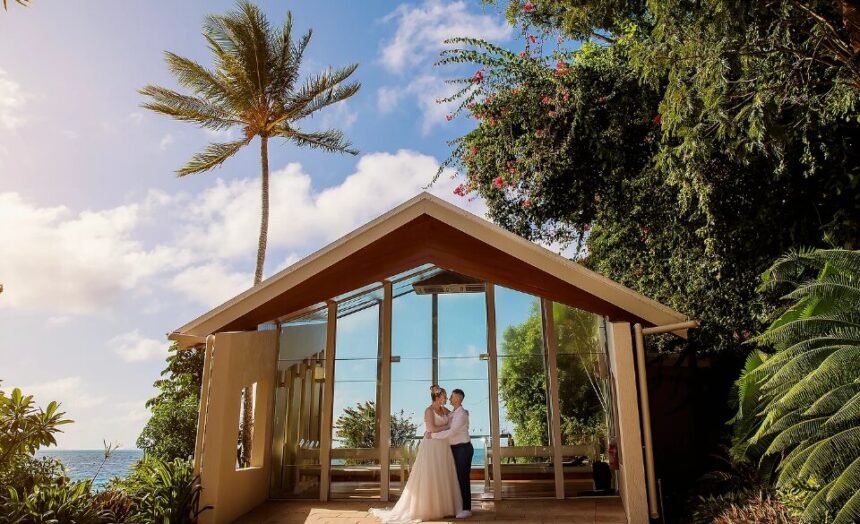What to Expect When You Elope
Eloping is a beautiful and intimate way to marry the love of your life. Over the years, elopements have become increasingly popular as couples opt for a more personal and less stressful wedding experience. Instead of the traditional large-scale wedding, many couples choose to elope, focusing solely on their commitment to each other, in a serene and meaningful way. In this guide, we’ll walk you through what to expect when you elope, providing a step-by-step breakdown of the elopement planning process, along with practical tips, ideas for elopement destinations, legal details, and budgeting advice.
Whether you’re seeking a simple, stress-free elopement or a destination elopement in a breathtaking location, this guide has everything you need to plan your perfect day.
Why Choose to Elope?
Eloping is a decision that many couples find to be both liberating and fulfilling. But why should you choose to elope instead of having a big, traditional wedding? Here are some reasons why elopements have become such a popular choice:
The Appeal of an Elopement
One of the main reasons couples choose to elope is to focus on what really matters: each other. Elopements allow couples to celebrate their love without the distractions of big wedding planning. The process is more personal, more flexible, and typically more affordable. You can bypass the stress of a large guest list, complicated logistics, and the pressure to follow traditional wedding expectations.
Intimate Weddings: A New Trend
In recent years, micro weddings and intimate elopements have risen in popularity, especially as couples look for more meaningful celebrations. Instead of hosting a grand affair, many couples prefer a small, close-knit ceremony with just a few loved ones, or even just the two of them. This intimacy creates a peaceful and heartfelt atmosphere for exchanging vows.
Elopement vs. Destination Weddings
An elopement and a destination wedding might seem similar, but there are some key differences. While a destination wedding typically involves a larger group of guests and more complex planning, an elopement is usually more private and spontaneous. Destination weddings can be big events, but elopements often focus on simplicity and getting married in a special place without the added pressure of organizing a large celebration.
How to Plan Your Elopement: A Step-by-Step Guide
Planning an elopement involves several key steps, each of which will ensure that your day is as special and stress-free as possible. Here’s a breakdown of the elopement planning process, along with tips for each stage:
Step 1 – Set Your Elopement Budget
Before diving into the details of your elopement, set a realistic budget. The beauty of eloping is that it can be significantly less expensive than a traditional wedding, but costs can still add up. Key expenses to consider include travel costs, attire, photography and videography, permits (if necessary), and elopement rings.
You don’t need to splurge on extravagant details; instead, focus on what’s most important to you. For example, a beautiful elopement photographer is a worthwhile investment to capture the intimate moments of your ceremony. There are also budget-friendly elopement destinations that allow for a stunning celebration without breaking the bank.
Step 2 – Choose Your Elopement Destination
One of the most exciting aspects of planning an elopement is choosing the destination. Whether you prefer the mountains, beaches, or an urban elopement, selecting the right location sets the tone for your special day.
Research various elopement locations and consider what feels right for you as a couple. Some locations may require a permit for elopement ceremonies, so be sure to check the local regulations. Popular elopement destinations include places like national parks, coastal cliffs, and charming cities that offer a romantic setting.
Step 3 – Hire an Elopement Photographer and Videographer
One of the most memorable parts of your elopement ceremony will be the photographs and video that capture the essence of your day. Hiring a professional elopement photographer is key to documenting this special moment.
Look for photographers who specialize in elopement photography, as they’ll understand how to creatively capture the intimacy of the day. Some couples also hire a videographer to record their vows and ceremony, creating a video to relive their elopement.
Step 4 – Elopement Ceremony Details
The elopement ceremony is the heart of your wedding day. While you may not have a traditional ceremony with bridesmaids, groomsmen, and other wedding parties, it’s still important to plan the ceremony details.
Consider whether you’ll exchange vows, what the ceremony will look like, and if you want a wedding officiant present. If you choose a destination elopement, find out if you’ll need a local officiant or if you can self-solemnize the marriage, depending on local laws.
Step 5 – Elopement Attire and Rings
What you wear on your elopement day is an essential part of your celebration. Unlike traditional weddings, you’re free to choose whatever makes you feel most comfortable and authentic. Whether you opt for a casual outfit or a more formal wedding dress, the key is that you feel yourself.
In addition to elopement attire, don’t forget to select wedding rings. Many couples opt for minimalist rings that complement the simplicity of the day. Choose something that symbolizes your commitment, but that feels true to your style.
Step 6 – Legal Steps to Elope
While planning your elopement ceremony, it’s crucial to understand the legal requirements involved. Depending on where you elope, you may need to secure a marriage license and fulfill other legal requirements. Be sure to research the marriage laws in the area where you plan to elope.
If you’re eloping to a different state or country, check whether there are any elopement permits required for your ceremony. Ensure that you have the correct documentation in place so that your elopement is recognized legally.
What to Wear for an Elopement Ceremony?
When it comes to elopement attire, the choices are endless. Unlike traditional weddings, where formal attire is often expected, elopement outfits can be more relaxed and reflect the couple’s personality. Here’s how to choose the perfect look for your elopement:
Choosing Elopement Attire
The beauty of eloping is that you don’t have to follow the typical wedding dress code. Some couples opt for casual attire, while others choose a more traditional wedding dress or a suit. Your attire should reflect who you are as a couple and the style of your elopement.
If you’re eloping in a destination location, consider the weather and environment when selecting your outfit. For example, a beach elopement may call for something lightweight and comfortable, while a mountain elopement might involve warmer clothing or outdoor gear.
Elopement Rings: Symbolizing Your Commitment
Elopement rings are another key part of your wedding day. Whether you choose something minimalistic or unique, your wedding rings will symbolize your love and commitment. Many couples choose rings that align with the simplicity of their elopement, while others opt for custom-designed pieces that reflect their personalities.
Where Are the Best Places to Elope in 2024?
Choosing the perfect elopement destination is one of the most exciting parts of planning your day. The options are endless, from stunning beaches to enchanting forests. Here are some of the best places to elope in 2024:
Popular Elopement Locations
Some of the most popular elopement destinations include national parks like Yosemite, Banff, or Zion, which offer breathtaking natural backdrops. Other couples choose coastal cities like Santorini or Maui for a serene beach wedding. European destinations such as Paris or Iceland also provide stunning locations for a destination elopement.
Budget-Friendly Elopement Locations
If you’re looking for an affordable elopement destination, there are plenty of hidden gems to explore. Consider less touristy locations or national parks that offer elopement packages at a fraction of the price of more popular destinations.
What Are the Legal Requirements to Elope?
While planning your elopement, you must address the legal aspects of getting married. Elopement permits, marriage licenses, and officiants are crucial to ensuring your ceremony is legally binding.
Marriage License Requirements
Depending on where you elope, you will need to acquire a marriage license. Research the specific requirements for the location of your destination elopement, including fees, residency rules, and waiting periods. Some states and countries allow self-solemnizing weddings, meaning you don’t need an officiant, while others require an official to sign the marriage certificate.
Elopement Permits and Officiants
Some elopement locations, such as national parks, may require an elopement permit to conduct a wedding ceremony. This ensures you’re complying with local regulations and doesn’t interfere with public areas. Always check the requirements ahead of time to avoid any last-minute surprises.
Conclusion
Eloping offers a unique way to celebrate your love, allowing you to focus on what’s most important: your commitment to each other. By following this step-by-step guide, you can plan a meaningful and unforgettable elopement that perfectly fits your vision. Whether you’re seeking a budget-friendly option or dreaming of an adventurous destination, your elopement ceremony can be as intimate, personal, and special as you want it to be.
FAQs
What are the benefits of eloping instead of having a big wedding?
Elopements allow for a stress-free wedding experience with minimal planning. You can focus on what truly matters: the ceremony and your partner. Eloping is also often more budget-friendly than traditional weddings.
Can I still have guests at my elopement?
Yes! Some couples invite a small number of close friends or family to witness their vows. This creates an intimate wedding that’s still shared with a select group of loved ones.
Do I need to hire an officiant for an elopement?
In many cases, yes. An officiant is necessary to ensure your ceremony is legally recognized. However, some areas allow you to self-solemnize your marriage, so check local regulations.
How do I plan a destination elopement?
Planning a destination elopement involves selecting your location, securing travel and accommodations, obtaining a marriage license, and hiring local vendors like photographers and officiants. Be sure to research the legal requirements for elopements in your chosen location.
What is the cost of eloping?
The cost of eloping varies depending on the location, vendors, and type of ceremony. However, elopements are generally more affordable than traditional weddings, especially since you can keep things simple and intimate.






